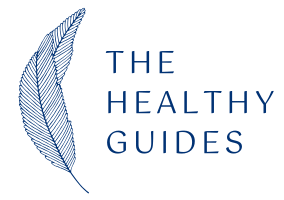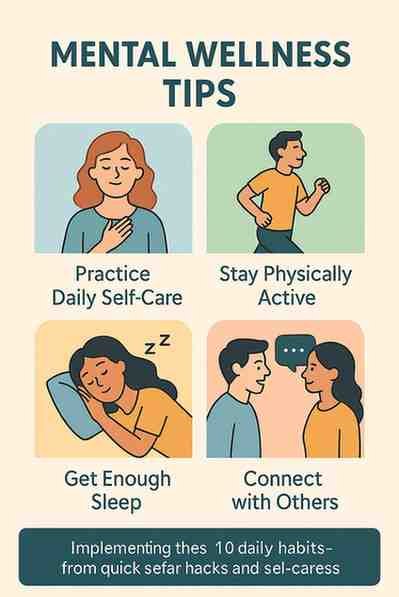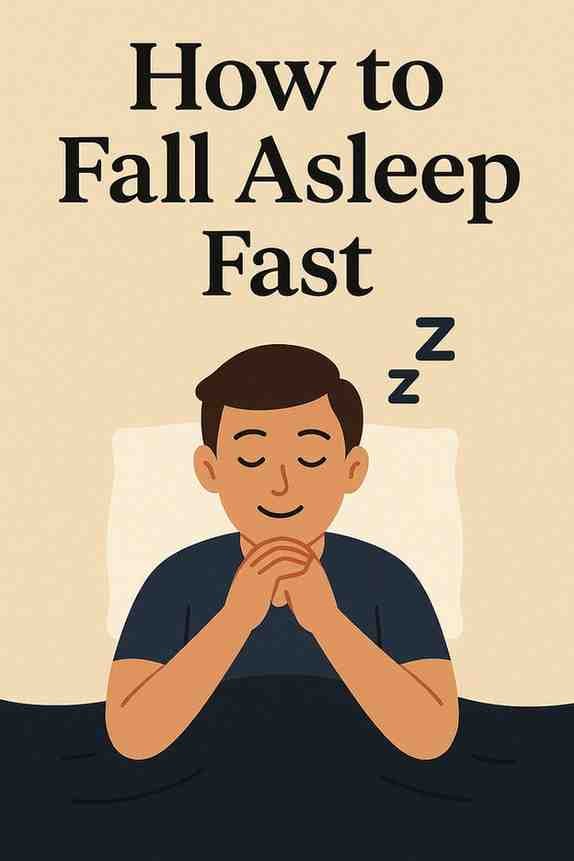Introduction: The Vicious Cycle of Anxiety and Sleep
You know that feeling when your head finally hits the pillow, and instead of drifting off into dreamland, your brain decides to hold a late-night conference on literally everything you’ve ever done wrong in life? Yeah, that’s sleep anxiety and insomnia showing up in full force.
Sleep anxiety is the fear of not being able to sleep—or the fear of what happens when you do sleep—and it creates a vicious cycle: you’re anxious, so you can’t sleep… and because you can’t sleep, your anxiety skyrockets the next day.
Over time, this cycle leads to exhaustion, irritability, trouble focusing, and even physical health problems. But here’s the thing: understanding the connection between anxiety and insomnia is the first step toward breaking free.
Understanding Anxiety and Its Connection to Sleep
What is Anxiety?
Anxiety is more than just stress or worry. It’s your body’s natural “fight-or-flight” system kicking into overdrive—even when you’re not in danger. For many people, this constant state of alertness shows up at night as sleep anxiety and insomnia—racing thoughts, a pounding heart, muscle tension, or that dreaded knot in your stomach.
And when this stress carries into bedtime, it creates sleep anxiety symptoms: lying awake, feeling restless, waking up with a racing heart, or experiencing nightmares.
Why Anxiety Causes Insomnia
Your nervous system has two settings:
- Fight-or-flight (sympathetic system) → alert, tense, ready for danger.
- Rest-and-digest (parasympathetic system) → calm, relaxed, ready for sleep.
When anxiety takes over, your body gets stuck in fight-or-flight mode. Stress hormones like cortisol and adrenaline keep your system on high alert, making it very clear why anxiety causes insomnia. Your body is essentially preparing to “survive,” not to rest.
Types of Sleep Problems Linked to Anxiety
Anxiety shows up in sleep in a variety of ways. Here are the most common:
1. Insomnia and Racing Thoughts at Night
The most obvious link is anxiety and insomnia. Instead of sleeping, you’re stuck with racing thoughts at night—rehashing conversations, worrying about tomorrow, or panicking about the fact that you’re not asleep yet.
2. Nocturnal Panic Attacks
Some people experience nocturnal panic attacks—waking suddenly in the night with a pounding heart, shortness of breath, and overwhelming fear. These episodes are terrifying and can make bedtime itself feel threatening.
3. Waking Up with Anxiety
Even if you do fall asleep, you may find yourself waking up with anxiety in the early morning hours. This is often due to a cortisol spike (which naturally rises in the morning), but for anxious minds, it can feel like waking straight into panic.
4. Sleep Paralysis Anxiety
Another frightening experience tied to anxiety is sleep paralysis anxiety—when you wake up but feel unable to move, often accompanied by a sense of dread. While usually harmless, it can be deeply unsettling, especially for those already struggling with nighttime fear.
The Psychological Side of Sleep Anxiety
Fear of Sleep Anxiety
Ironically, one of the most common issues is not anxiety itself, but the fear of sleep anxiety. People begin to dread bedtime because they’ve experienced insomnia or nighttime panic before, which creates anticipatory anxiety. The thought becomes: “What if I can’t sleep again tonight?”—and sure enough, that fear keeps them awake.
Racing Thoughts at Night
Quiet bedrooms can become the perfect stage for anxious thoughts. Without distractions, your mind replays old conversations, creates new worries, or spirals into “what if” scenarios. This mental noise is one of the biggest reasons people experience anxiety and insomnia together.
The Physical Connection: When the Body Won’t Calm Down
Beyond thoughts, anxiety makes it hard for the body itself to relax:
- Cortisol and Adrenaline: These stress hormones keep your heart pounding and muscles tense, blocking deep sleep.
- Muscle Tension: Anxiety causes restlessness, tossing and turning, and jaw clenching—making it hard to fully rest.
- Gut-Brain Axis: Anxiety often disrupts digestion, which can lead to nighttime discomfort and broken sleep.
Together, these physical responses explain why many people experience sleep anxiety symptoms beyond just worry—like sweating, nausea, or racing heartbeats at night.
Common Triggers That Make Sleep Anxiety Worse
- Stress and Overthinking: Work deadlines, relationship drama, or finances often pop up right before bed.
- Technology and Blue Light: Scrolling late at night delays melatonin, worsening insomnia.
- Poor Sleep Environment: Noisy or uncomfortable rooms reinforce nighttime stress.
- Lifestyle Habits: Caffeine, alcohol, or irregular schedules fuel both anxiety and insomnia.
Short-Term Coping Strategies
When you’re awake at 2 AM with racing thoughts at night, here’s what can help right away:
- Breathing Techniques: Slow your heart rate with “4-7-8 breathing.”
- Grounding Exercises: Use your senses to pull yourself out of spirals.
- Journaling/Mind Dump: Write down worries so your brain doesn’t hold onto them.
- Gentle Rituals: Create calming cues like tea, reading, or stretching before bed.
These tools don’t “cure” anxiety, but they break the immediate cycle of panic and sleeplessness.
Long-Term Solutions for Sleep Problems with Anxiety
Short fixes are good—but lasting relief takes time.
Therapy
- CBT-I (Cognitive Behavioral Therapy for Insomnia): Resets sleep patterns and tackles sleep-related anxiety.
- CBT for Anxiety: Helps address the thought patterns that trigger fear of sleep anxiety.
Medication Options
Sometimes, short-term sleep aids or anxiety medications (prescribed by a doctor) help break the cycle.
Lifestyle Adjustments
Exercise, consistent sleep schedules, and reduced caffeine/alcohol make a huge difference.
Sleep Hygiene Habits
- Keep your bedroom dark, cool, and quiet.
- Avoid screens an hour before bed.
- Use the bed only for rest, so your brain associates it with calm—not stress.
Holistic and Natural Approaches
- Herbal Remedies: Chamomile, lavender, or valerian root can reduce sleep anxiety symptoms.
- Mindfulness & Meditation: Calms racing thoughts and reduces panic at night.
- Yoga & Gentle Movement: Releases tension, preparing the body for rest.
- Weighted Blankets: Reduce stress by mimicking deep-pressure touch.
When to Seek Professional Help
If your anxiety and insomnia last more than three months, or if you regularly experience nocturnal panic attacks, sleep paralysis anxiety, or extreme fear of sleep anxiety, it’s time to reach out to a professional.
Sleep specialists or therapists can run sleep studies, identify underlying conditions, and guide you toward recovery.
Conclusion: Breaking the Cycle
Sleep problems with anxiety are tough. They may come as insomnia, racing thoughts at night, or even frightening episodes like nocturnal panic attacks and sleep paralysis anxiety. But they’re not permanent.
With daily habits, long-term strategies, and support when needed, you can reduce both anxiety and its nighttime impact. The goal isn’t “perfect sleep” every night—it’s progress, patience, and a kinder relationship with rest.
Remember: your mind and body want to sleep. By addressing anxiety and building healthier patterns, you can slowly shift from restless nights to calmer, more restorative ones.
Of course. Here are well-crafted FAQs for “Sleep Problem with Anxiety” that incorporate high-value keywords and address common user concerns.
❓FAQs: Sleep Problems and Anxiety
Q1: What are the common symptoms of sleep anxiety?
A: Common symptoms include racing thoughts at night, a pervasive fear of not being able to sleep (somniphobia), waking up with a panic or feeling of dread (nocturnal panic attacks), muscle tension, heart palpitations, and excessive worrying about sleep itself. This creates a cycle where the anxiety about sleep actually prevents it.
Q2: Why does my anxiety get worse at night when I’m trying to sleep?
A: Anxiety often worsens at night because there are fewer distractions. Your brain is finally quiet enough for anxious thoughts to surface. Furthermore, lying in bed without a task can lead to ruminating on the day’s events or worrying about the future, a state often called “bedtime rumination.”
Q3: What is the fastest way to calm anxiety at night for sleep?
A: For immediate relief, try the 4-7-8 breathing technique: inhale for 4 seconds, hold your breath for 7 seconds, and exhale slowly for 8 seconds. This activates your parasympathetic nervous system, forcing your body to relax. Getting out of bed and doing a quiet, non-stimulating activity like reading a physical book (no screens) can also help break the cycle of frustration.
Q4: Can anxiety cause sleep paralysis or bad dreams?
A: Yes, absolutely. High anxiety levels can disrupt your sleep cycle, leading to more frequent awakenings during the REM (dream) stage. This can make nightmares and intense, stressful dreams more vivid and memorable. Anxiety is also a significant risk factor for sleep paralysis, a frightening feeling of being conscious but unable to move.
Q5: What are the best natural remedies for anxiety-induced insomnia?
A: Effective natural strategies include:
- Establishing a Sleep Routine: Going to bed and waking up at the same time every day, even on weekends.
- Sleep Hygiene: Creating a cool, dark, and quiet sleep environment and avoiding screens an hour before bed.
- Mindfulness and Meditation: Practices like guided sleep meditation can train your brain to quiet anxious thoughts.
- Natural Supplements: Magnesium glycinate, chamomile tea, and valerian root are commonly used, but you should consult a doctor before starting any new supplement.
Q6: When should I see a doctor about sleep anxiety?
A: You should consult a healthcare professional if your sleep anxiety persists for several weeks, significantly impacts your daily functioning (e.g., causing fatigue, poor concentration, or mood swings), or if you experience frequent nocturnal panic attacks. They can help rule out other sleep disorders like sleep apnea and recommend treatments like CBT-I (Cognitive Behavioral Therapy for Insomnia), which is highly effective.
Eating in sync with your body clock doesn’t just help your stomach — it also supports a calmer, more focused mind. If you want to explore more ways to care for your mental wellbeing, check out our full guide on practical tips for better mental health.
👉 For more tips and support, visit our Facebook page.







